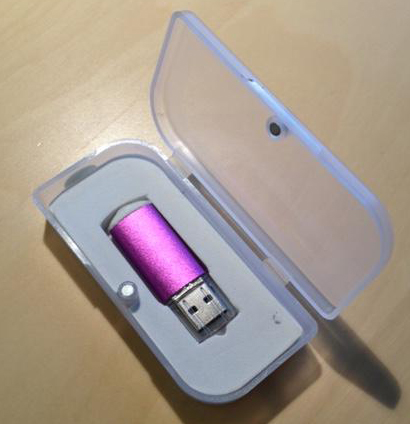Post Update: December 18, 2014:
The Mycelium iOS Wallet is now available from the iTunes Store (free).
Since 2009, Mycelium has been developing a range of innovative bitcoin-related products: the Mycelium android bitcoin wallet; Entropy, an Indiegogo-funded, hardware-based paper wallet generator; and the secure Bitcoincard that can sign transactions offline or on a mesh-network. This past week, Dmitry Murashchik beamed into the Decentral Toronto Bitcoin Meet-up to discuss these projects and give us some insights into what’s coming down the development pipeline.
Some of you may recall that Entropy raised over $31,000usd on Indiegogo this year, a campaign that was notable in part because it also included the option to support the project using bitcoin. The Entropy device itself is a USB-based hardware module that you can plug into a printer to generate paper wallets, and includes the option to print 2-of-3 split keys using Shamir’s Secret Sharing algorithm. For security, it uses static-RAM (SRAM) cells to generate completely random states, and hence produces a high degree of entropy. How much entropy? Over 9000 bits. Of course, all of this is for naught if your printer stores a copy of what gets printed; choose a cheap printer (one you’re sure doesn’t store data), instead of a networked office printer to print your private keys.

Dmitry also gave us an update on the Mycelium Bitcoin wallet, which just received a 2.0 upgrade. The most notable new feature is Heirarchical Deterministic (BIP0032) address generation, a feature that improves anonymity and security by generating a new public address for each transaction; it also makes wallet backups a lot easier than with the previous version.
One of the features that has been retained in the wallet app, fortunately, is LocalTrader, a localbitcoins-like feature that connects buyers and sellers directly. Despite the impressive potential here, Dmitry mentioned that it hasn’t seen as much usage as he and the team would like. At the moment, LocalTrader charges a 0.2% fee per transaction, but Dmitry says that Mycelium is looking into lowering transaction fees in the near future, based on feedback from clients; hopefully that will help increase adoption.
Dmitry also touched on developments regarding the highly anticipated Bitcoincard. This type of “debit card” system is the cornerstone of the Mycelium project. This was the first project that the Mycelium team started working on, but their other projects jumped the queue and have been released before this one. Part of reason for the the delay, according to Dmitry, is that this card is “a technology ahead of its time.” He explained that this sort of innovation is very difficult in terms of development.
The goal of the card is to be a wireless and self-sustainable “stand-alone device that acts as an electronic wallet” without need for an immediate internet connection. When it’s released, each card will have a range of 300 metres and can be used as part of a “mesh” network, enabling users to sign and send bitcoin transactions without being directly connected to the internet. Aside from acting as a hardware wallet, this card should make using bitcoin possible anywhere on the planet and under any political or technical situation (such as in cases where there is physically no internet access or access has been blocked by a government regime). No projected price range for the cards was given, but it is expected to be quite low to allow for reasonably widespread adoption.
On the software side, we’ll also start to see many new features in future releases, including CoinJoin support, a plan to move the transaction broadcast servers to Tor, multi-sig options in the app, and 2-factor authentication. Their focus, quite clearly, is security and privacy — something we all welcome.

 Made in Canada
Made in Canada